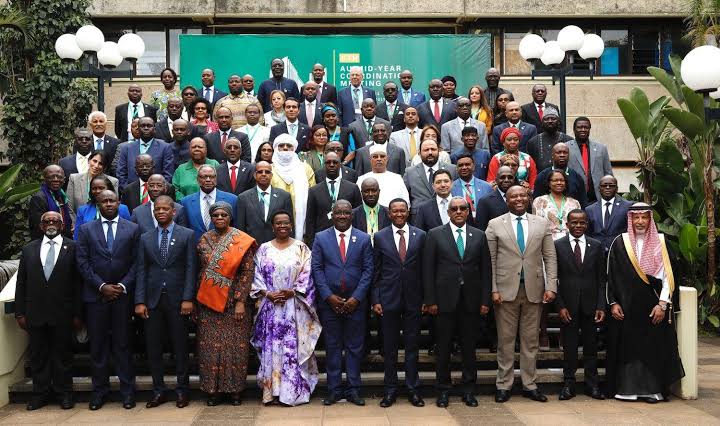
The African Union has implemented important policies and tactics that have an impact on the workplace, such as those that address fair hiring practices, youth employment, social economy, and minimum wage.
In a statement, the AU said that by implementing the Social Solidarity Economy Ecosystem, the AU-ILO Youth Employment Strategy, and the Fair and Ethical Recruitment Strategy for Africa, it had made tremendous progress toward advancing social justice and job opportunities throughout the continent.
It stated that the AU-ILO Joint Operational Plan, which is based on the ILO Abidjan Declaration and the AU’s Agenda 2063, had produced all of those important outcomes.
“The SSE ecosystem, grounded in the core tenets of social justice, has been a focal point of the AU’s efforts. It promotes fair distribution of resources, and equality, and gives voice and agency to the underprivileged.
“Cooperatives, a key component of the SSE, create employment and income-generating opportunities, support skills development, promote collective action, improve access to markets, and contribute to environmental sustainability,” AU stated.
The union claims that the fifth ordinary session of the Specialized Technical Committee on Social Development, Labour and Employment, with the theme “Promoting Social and Solidarity Economy Ecosystems,” emphasized the union’s dedication to the SSE and aligned with the goals of the African Union.
It went on to say that a major step in promoting SSE in Africa was the creation of the AU’s 10-year Social and Solidarity Economy Strategy and Implementation Plan (2023–2032).
“23 countries and 34 social partner organizations across Africa are part of the Global Coalition for Social Justice, and I urge all others to follow suit,” ILO Assistant Director-General and Regional Director for Africa Fanfan Rwanyindo stated at the STC meeting.
“The topics on the agenda of this STC underscore our quest to advance social justice in Africa! This is precisely the mission of the Global Coalition for Social Justice. Together, we can build a future where social justice is not just an aspiration but a living reality for all.”
The union stated that the ILO and AUC will assist AU member states in creating a sustainable funding structure that would incorporate both internal and external funding sources.
Apart from the SSE, the AU also revealed that it has collaborated with the ILO to create the “YES-Africa,” or AU/ILO Youth Employment Strategy for Africa.
“This comprehensive framework aims to trigger structural transformation and change the world of work by creating decent jobs for all African youth. With 26 per cent of young people in Africa neither in employment, education, nor training, transformative change is indeed needed to deliver a future in which they can harness their full potential,” it mentioned.
In the meantime, in order to fulfill labor market expectations when implementing YES Africa, the AU advised member states to fortify public-private partnerships for job creation, good jobs, and youth upskilling.
The union claims that as part of the Fair and Ethical Recruitment Strategy for Africa, it worked with the ILO.
It also stated that the plan was a component of the Joint Labour Migration Programme, which aided in the creation of national labor migration policies throughout Africa as well as continental guidelines and information management systems for the labor market and labor migration.
